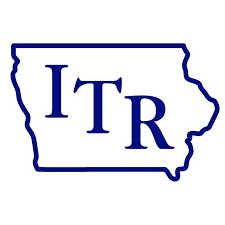NOTEBOOK: New calls to action on water quality

PERRY BEEMAN Aug 30, 2016 | 8:41 pm
3 min read time
779 wordsAll Latest News, Business Record Insider, Energy, The Insider NotebookThere was a different tone at this year’s Farm Progress Show. Oh, sure, I saw the big display of “sale” farm equipment before I even got to Boone, parked side-by-side at Iowa Highway 17 and Zook Spur Road on the way to Madrid from Des Moines. There were the long lines of vehicles that turned Highway 17 into a one way going north temporarily as organizers guided a State Fair-like crowd into muddy fields for parking. Many visitors drove pickups. That was a good thing.
The talk in the media tent was about water quality, nitrate and soil conservation even more than the latest farm machinery.
The Greater Des Moines Partnership announced a new agriculture technology accelerator (see related story). That will focus on new innovations that very well could include some that could reduce chemical runoff of the type at issue in the Des Moines Water Works’ federal lawsuit against three northwest Iowa counties over farm pollution.
Tomorrow, there will be news of another partnership that will provide monetary support for related projects.
Today, Agriculture Secretary Bill Northey joined the Iowa Agriculture Water Alliance to announce a new effort to do basically two things: help tell farmers how they can help themselves and the economy by saving soil and cutting pollution in watersheds, and getting them to act quicker than they might otherwise. The Alliance was formed by the Iowa Corn Growers Association, the Iowa Soybean Association and the Iowa Pork Producers Association.
The changes supported by the Alliance could mean showing farmers how changes of tactics even in small area could save them money, the Alliance said. It could mean tying land values to soil health. It could mean farmers planting cover crops like rye that hold soil in the off season, looking into some kind of tax credits, or pollution trading, or chemicals that help stop nitrate from forming.
Lots of ideas have been floated, and this partnership, said Northey and IAWA director Sean McMahon, is about making sure farmers find what is right for them and their watershed, and move quickly to add efficiencies that also will help clean waterways with voluntary efforts through the Iowa Nutrient Reduction Strategy.
“We’re very excited to see what will bring more engagement,” Northey said “This is about empowering the producers on the countryside.” And it’s about teaming up with businesses and the water association’s new Business Council to get that done, he added.
McMahon said farmers aren’t getting full credit in some circles for cuts in fertilizer and gains in conservation that began in 1980. But he acknowledged that the use some practices, such as pollution-eating wetlands, will have to jump by 100-fold or more to meet state goals for reducing pollution, which were based in part on federal goals intended to ease the dead zone in the Gulf of Mexico. Fertilizer contributes to huge algae blooms there that suck nearly all the oxygen from the water when they die and decompose.
Northey said he is focusing on persuading farmers to use practices that will be good for their farm, good for business, and good for water quality. Scientists at Iowa State University and elsewhere are coming up with ways to measure improvement, he added.
“We are going to see the type of engagements that are vastly superior to trying to come up with a regulatory scheme that fits every farm or every watershed,” and focuses on voluntary actions and incentives for landowners, Northey said. A challenge: A large share of Iowa’s row crops are on rented land, meaning the owner must be persuaded, too.
Northey said he’ll leave the debate over state financing to others, but he said the success of the Nutrient Reduction Strategy will come down to investments by companies, farmers, government departments and others.
Asked if he would sign a court settlement to make legal guarantees in improvements in exchange for dismissal of the controversial Water Works lawsuit, he said with a chuckle: “I’ll take that as a rhetorical question.”
It wasn’t, but his response shows how touchy these issues are. The statements at today’s press conference showed this group is serious about acting and hoping to ward off talk of regulations on farms by showing progress.
The Alliance formed a new Business Council that will pick the brains of people like Steve Bruere of People’s Co., who already has been deeply involved in the water quality debate as part of a task force formed by the Greater Des Moines Partnership, and Dan Foor, the head of the council, who is CEO of La Crosse Seed.
Eventually the group plans to issue recommendations to Northey’s department to be shared with farmers and others.










